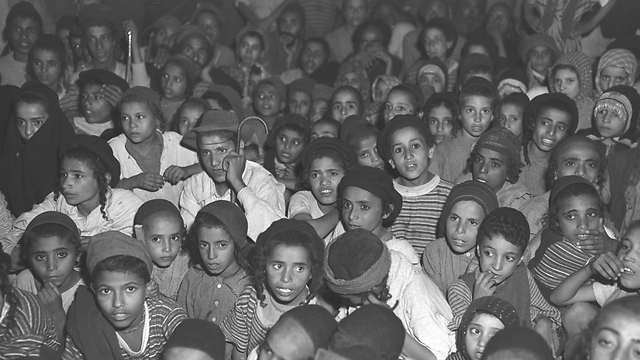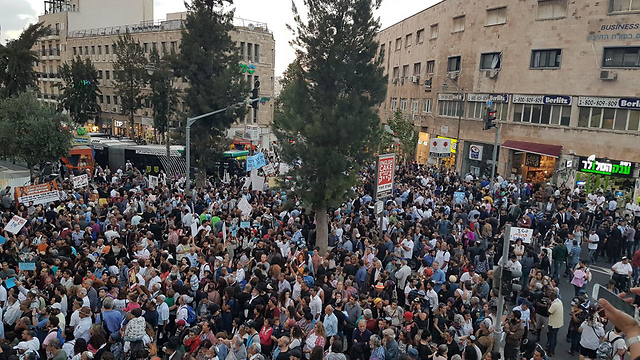
A number of families are demanding reparations from the government for the Yemenite Children Affair—in which hundreds of babies and toddlers of Yemenite who have just recently immigrated to Israel disappeared between 1948 to 1954, in what some believe was a "major cover up" of their kidnappings.
The demand was sent to the office of Finance Minister Moshe Kahlon earlier this month by Attorneys David and Chaya Mena representing several families whose relatives disappeared in the affair, demanding that 1,050 families affected by the affair be compensated.
"Since what is done is irreversible, we are demanding that the government compensate these families," the letter said. "Compensation for the families is the minimum (that can be done—ed) to put an end to this affair." The attorneys then requested mutually agreed-upon specifications that will determine the amount of compensation for each family.
"We want to prevent this case from going to court," explained Mena. "We ask that a committee be set up on the matter. The moment that Kahlon does not meet our demands, we will go to court. At the moment, a class action suit is pending.
The families we represent will constitute case studies for more than 1,000 families who deserve compensation from the state."
The lawyer made it clear that families who agree to receive compensation will relinquish their right to sue the state over the affair in the future, effectively putting it behind them.
"You can't let this affair drag on to no end," Mena said.
"The state behaved like the driver in a hit-and-run," claimed Menachem Yizhari, whose brother disappeared when Yizhari was six years old. His is one of the families that demand compensation for the public.
"Our case had far-reaching consequences," he said. "My mother stopped functioning after they kidnapped my brother. As an eight-year-old boy, I found myself living in a shack in Rosh HaAyin on my own, cooking for myself and doing my own laundry. I went through hell until I joined the IDF. Someone has to pay for what we went through."
Yizhari searched for his older brother for years. He used his access to police computers while he was volunteering in the Civil Guard and discovered that his brother's identity card exists but his name is encrypted. After some inquiries he finally discovered that his brother is alive, but did not live in Israel.
"I thought I lived in a law abiding state, but not everyone is equal before the law," he said. "The state is very dear to me, but at the same time it is an open and painful wound."
Yizhari added that, while deserved, the money will not mean the end of the affair and the silencing of the families.
"There is no price to what we went through," he asserted, demanding that the files (on the affair) be opened and that the state "ensures that my brother, who is somewhere in the world, knows that he has a family here. To find these children before it's too late."
Hanoch Oz, a member of the Rosh Ha'ayin Municipality Council, whose aunt disappeared when she was a baby, also demands compensation but does not forfeit recognition.
"The more we become aware of more and more cases, including clinical trials on children, the more I believe that the state must pay for this injustice," said Oz. "Our grandmothers died of grief because of the loss of their children, it has no price.The state must pay but also allow the opening of all the secret files (on the affair)."
Etty Ahimeir, whose sister disappeared in the 1950s, added: "Personally I do not need the money and I do not intend to use it for personal use. The payment of compensation has many implications, and if it is accepted, I can donate it to charity. The money will probably not heal our wounds."
The Yemenite Children affair resurfaced once again in the public debate in May last year following the Achim Vekayamim organization’s stated intention to renew efforts to discover the truth behind one of the cases, which has caused a storm in Israel for decades.
Most cases in the Yemenite Children Affair involved the parents being told in the hospital that their newborn children had died, although they never received additional reliable information about their fates. The parents claim that their children were actually kidnapped to be given or sold to Ashkenazi families.


















